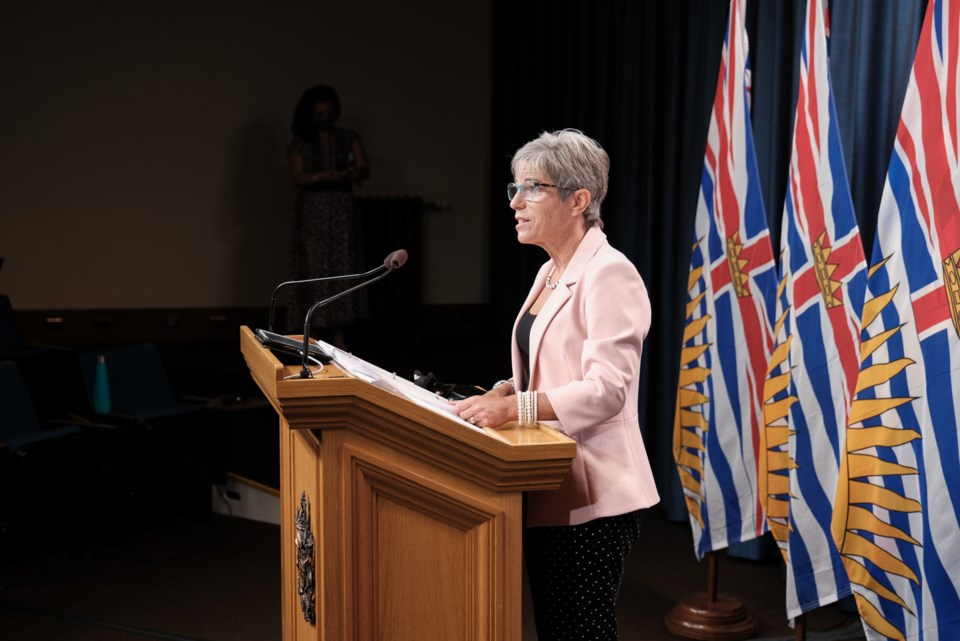Finance Minister Selina Robinson says the willingness of British Columbians to follow public health rules, as well as get vaccinated, has helped the province post a better-than-expected economic recovery that could cut the deficit in half this year.
But digging through the numbers, it’s striking how much of BC’s financial good fortune is completely outside of its control.
Robinson pointed to a windfall of $6.2 billion in unexpected revenue that cut its deficit from a projected high of $9.7 billion in April’s budget to almost $4.8 billion, according to her first quarter financial results tabled Tuesday.
“Despite the ongoing uncertainty, there are positive signs for BC’s economic outlook, and our fiscal position,” she said. “There are reasons for optimism. People are continuing to get their vaccinations. We are seeing many sectors reopen and stay open. And employment is above pre-pandemic levels.”
Yet $4.7 billion of that cash windfall - or almost 75 per cent - comes from sources the province can’t (or won’t) directly influence.
That includes $3.4 billion in extra personal income tax and corporate income tax revenue, which is administered by Ottawa and is historically often sharply above or below estimates with very little warning or explanation to BC officials.
The province also benefited from $360 million more in real estate sales than even its rosiest projections, for a whopping $2.3 billion in projected property transfer tax revenue this year.
Yet both the BC and federal governments have been loath to do anything that would actually bring the cost of housing down, for fear of popping the bubble and causing people who’ve purchased recently to go underwater on their mortgages. So this extra revenue, while welcome, also isn’t something BC can claim is part of its economic recovery strategy.
Then there’s cash from Ottawa, which has formed the backbone of the country’s pandemic recovery efforts, and is up almost $913 million more than BC predicted in April’s budget. That’s mainly due to Prime Minister Justin Trudeau hurling cash out the door for child care, health care, and other provincial programs before he called an early election last month - again, good for BC but not in any way related to how our province actually manages its books.
All of which leads to the question: Is BC’s unexpectedly positive financial situation basically just good luck?
Robinson tried to spin that question Monday into the budgetary equivalent of ‘you have to be good to be lucky.’
“We need to remember that, through 2020, British Columbians paid attention to the public health office,” she replied.
“What that meant was we were able to keep as much of our economy open, making sure that child care and that school stayed open so that people could work, has made a difference. So I think it's really British Columbians that have made the difference here in terms of keeping things going as best we could, in an uncertain time.”
There is truth to that answer - mainly that Dr. Bonnie Henry helped keep our economy, construction, and retail sectors going during the worst periods of the pandemic last year by refusing calls for a total lockdown. That’s left BC in a much better position than other provinces.
In turn, we’ve benefited from things like higher Provincial Sales Tax revenue, as people were free to shop.
But there are big risks on the horizon that could disrupt it all, as Robinson readily acknowledges.
The fourth wave of the virus might extend through this fall and into 2022. BC only has $690 million left from a $3.25 billion pot earmarked for pandemic support programs to help businesses and people recover. And if the rest of the world keeps getting walloped by variants of COVID-19, that impacts BC’s trade and export revenues as well.
Thankfully, B.C. has $4.25 billion in other contingencies set aside, along with $1 billion in a forecast allowance, to give it a sizable buffer if things go sideways.
On that, Robinson deserves full credit for a budget that has been cautious and careful during these uncertain times.
“Despite the progress that we have made, there is still much risk and uncertainty related to our fiscal plan,” she said.
Both from the things the BC government can control, but mostly from a pandemic world that it can’t.
Rob Shaw has spent more than 13 years covering BC politics, now reporting for CHEK News and writing for The Orca. He is the co-author of the national best-selling book A Matter of Confidence, and a regular guest on CBC Radio.
SWIM ON:
- Rob Shaw: The dirty secret in politics has always been that negative advertising works. In the last week of a tight federal election, you’re about to see lots of it.
- In April, Rob Shaw noted how when it came to childcare - and paying for it - the cavalry came from Ottawa.
- Political Capital 17 looked at one underappreciated aspect of the provincial budget - that of the premier's office.



